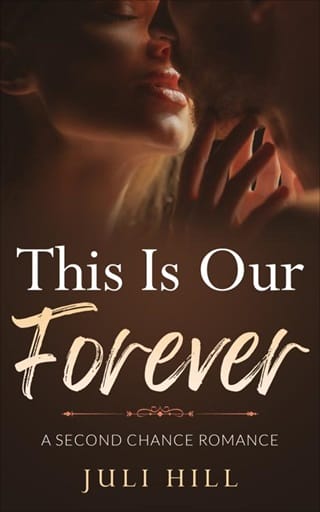Chapter 4
The postman brought Aunt Edith's reply the next morning and she urged me to pack immediately and make my way to Gatley, that very same day if I were able. She was quite surprised I'd remained in London for so long. At midday, I took the train from Waterloo station. Mrs Puddleton was not happy about my departure as she'd need to find a replacement, but said, reluctantly, that she understood the position I found myself in. The train carriage was crammed with passengers who presumably, like me, were displaced due to the bombing. Once I'd put my suitcase in the luggage rack overhead, I was grateful to get a seat, although it was next to a group of noisy children. They were being escorted by a rather fierce-looking woman clutching a clipboard. A pair of glasses rested on her nose, and she called out their names and they answered, ‘Yes, miss,' in return. On the other side of the carriage sat a middle-aged man, wearing a bowler hat, his head buried in The Times, and he didn't look too pleased when the woman directed a couple of the children to the seats next to him. Everyone seemed to be relocating and they all looked as miserable as I was to be forced out of our beloved London.
We passed through Clapham Junction, and I looked out of the window at the rows of houses going up the hill, thinking back to better times when Mother, Father, Mildred and my other sister, Joan, had all lived together in a terraced house near Battersea Rise. When Father died, Mother encouraged Mildred and Joan to marry – as she was concerned about their financial security – and they did so, rather too swiftly for my liking. After they left, it was only Mother and me until the war began and I missed their company. Not long after the blitzkrieg started, she sold the house and decamped to Brighton to live with Mildred, offering to help look after the children while her husband was away fighting.
The signs had been removed from all stations in order to confuse the Hun if they did indeed manage to invade, and so I counted them one by one until we reached the tenth, shortly after Epsom. When I got off the train, so did many of the other passengers, and it took a little time for everyone to move along the platform as they organised themselves and their luggage. The fierce-looking woman led the children, who continued to chatter loudly, up the steps and over the footbridge. They moved at a snail's pace, which didn't bother me too much as I wasn't desperate to reach Gatley in a hurry. I looked across at views of the Surrey Hills, and it was all very scenic with not a building in sight; but still, I was a city girl at heart. All I could do was accept my fate – the war was driving me to the countryside, and there was nothing I could do about it.
I crossed the footbridge and, while descending the steep staircase on the other side, I studied the platform from where the trains ran to Waterloo. Hesitating for a moment, I considered buying a cup of tea in the cafeteria and waiting to board the next train back. Clocking the payphone on the platform, I thought about calling my aunt to say I'd changed my mind.
The people ahead of me made their way towards the gap in the wall marked ‘Exit' and the station became quiet, the only sound birdsong, the murmur of two women sitting on a bench on the other platform, the clippity-clop of horses and the distant hum of a motorcar. It was tempting to get back on the train to London, but where would I live? Mrs Puddleton wouldn't let me back into the boarding house if I had no money to pay rent. And what job would I do now Taylor and Stone had burned to the ground? It could take weeks to find another means of employment. Besides, Aunt Edith was expecting me, and Mother would be livid if I didn't turn up. My only option was to proceed as planned. I could always return to London in due course, once I was able to afford it. Aunt Edith seemed certain of her ability to secure me a job, so I could put some money away, build a nest egg.
As I approached the exit, someone coming from the other direction bumped into me and knocked me for six. My nerves heightened by recent events, I found myself physically shaking from the shock, tears pricking my eyes. Looking at the ground, I was horrified to see the contents of my suitcase spewed across the platform, and a brassiere draped over the impeccably polished shoes of the man who'd made it happen. Looking up, I noted he wore a chauffeur's cap and a charcoal-grey jacket with gold buttons.
‘Look what you've done, you clumsy oaf,' I said, but instantly regretted my words as he studied me with kind eyes.
‘I am very sorry, miss. Are you quite all right?'
‘I'm fiiine,' was all I could muster, my voice wavering while I fought to stop myself from crying. I wasn't one of those women who used tears to manipulate and gain the sympathy of others, but the past few days had almost broken me, and there was more uncertainty to come. He bent down and picked up the brassiere as discreetly as was possible, his lips upturned as if he were trying not to laugh, and dropped it into the suitcase.
‘You don't need to do that,' I said, looking away as he rolled up a pair of stockings. Ignoring me, he continued to collect the rest of my belongings, and I allowed him to.
‘Thomas, is that you over there?' A voice came from the other platform, and one of the women sitting on the bench, who wore a beautiful green hat with a wide brim, rose to her feet. He stopped what he was doing and stood up. ‘Do hurry up, young man,' she said. Her knee-length coat was cream with a black collar and matching buttons, and she reminded me of the well-to-do women who'd come into Taylor and Stone with their husbands' money to spend. I'd always been glad to see a woman of her ilk approach the counter, but knew how demanding they could be. They were used to getting what they wanted and often could be condescending towards me, a mere shopgirl. The woman in the hat made her way towards the bridge, the heels on her shoes clicking, and her companion, presumably a maid, followed.
‘I'm sorry, milady,' Thomas shouted across to her in reply. ‘The Standard didn't have enough petrol and I had to get the Rolls out of the garage. You know it's not easy, what with the fuel rationing.'
‘Oh Thomas, really, you know I prefer to be collected in the Standard.' She shook her head. ‘Never mind.'
He looked down at me. ‘That's my mistress, Lady Violet. I do apologise for running into you like that. As you can see, I was in a bit of a hurry – her ladyship does not like to be kept waiting,' he said, raising his eyebrows. He squatted once again and clicked my suitcase shut, before standing up and passing it to me, our hands brushing as we did the exchange.
It was an accident after all, and he seemed a good sort. ‘It seems that you were indeed in a hurry,' I said. ‘Thank you for your apology.'
‘Do make haste, Thomas, really. Stop talking to your lady friend.' Lady Violet was now halfway up the steps on the other side.
He headed for the footbridge, then stopped, turning to look over his shoulder.
‘I didn't catch your name, miss?'
‘Margaret, although most people call me Mags.'
‘Mags it is,' he said. ‘Most people call me Tom. Hope to see you again.'
‘Oh, I don't intend to stay in this place for long. I'm a London girl.'
He laughed. ‘That's what they all say.'
He broke into a jog as he approached the steps, as if suddenly realising his mission, and ran over the footbridge to the other side, where he picked up Lady Violet's bags. She and her maid, who wore a rather dowdy brown dress that hung off her slender frame like a farmer's sack – highly inappropriate for a lady's maid, I noted – followed him. Not wanting to encounter them all, I left the station through the gap in the wall marked ‘Exit' and found myself alone. The horses and carts and motorcars had gone, apart from the Rolls that Thomas had mentioned, gleaming as if recently polished. A trail of passengers from the train stretched ahead along the country lane – towards the village of Gatley, I assumed. There were no signposts, just like there were no signs at the stations, and in unknown locations we all had to guess where we were going. It was a damn nuisance, but a necessity. The country lane was bordered with hedgerows and most of the fields beyond looked as though they were being used for crops. The scenery was rather cheering and the air noticeably cleaner than in London, a consolation at least.
Carrying the suitcase was tiring and I stopped and sat on it to rest, longing for a glass of water and a bite to eat. The Rolls passed and, as Tom threw me a discreet wave with a gloved hand, I wondered whether we'd see each other again. Summer lingered despite it being nearly the end of September, and I removed my mackintosh, tied it round my waist, and blotted the film of sweat on my forehead with a handkerchief. Conkers from a sweet chestnut tree lined the ground, and I picked one up and turned it over in my hand. It was so shiny and clean, and I marvelled at how nature produced such beauty. I slid it into the pocket of my dress for luck and watched a tractor plough the field beyond the hedge, with what seemed to be a woman driver, a land girl no doubt. The way it moved up and down was soporific and, while studying the furrows created, I imagined working as a land girl. Wearing scruffy clothes and trudging through manure and mud didn't appeal much, although driving a tractor might be fun. But you were right out there in the open while enemy planes passed overhead and who knew if a stray bomb might fall on you? I shuddered at the thought.
One day, when the war was over, I would go back to London and pick up where I'd left off. In the meantime, all I could do was inhale the country air into my lungs and do my best to keep on going.
 Fullepub
Fullepub 



